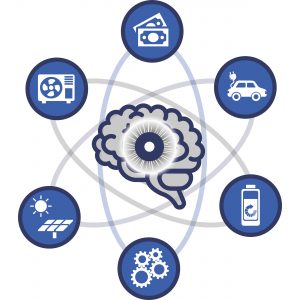Download Area
Welcome to the Download Area, where you can access all your downloads and updates. We hope you find what you are looking for.
Welcome to the Download Area, where you can access all your downloads and updates. We hope you find what you are looking for.


Smart metering provides a foundation of energy usage understanding, accurate billing and more sophisticated pricing which is a useful start. Those offering the benefits of new technology and information insight to customers need to find ways to engage with them so the energy transition can evolve from trials into mass market product adoption.
Global competitive energy markets have focused to date primarily on anticipated cost savings through switching, with secondary considerations of service, green energy and brand. If a customer has a bad experience they may switch again, so an economy has grown to stimulate and now automate switching annually. This increasingly short term competitive market has little incentive to consider our world’s long term needs nor are the anticipated savings ever validated, leading to repeated switching and little long-term customer engagement.
The promises of new technologies are emerging all at once in a disparate way without any cohesive guidance to the energy customer. Upfront substantial costs of these technologies need to be financed, but with
the prospect of more complexity and unclear benefits it is impossible for the customer to make an informed choice today. There is a race already underway to create the basic guidance, propositions, integration and commercial models that move technologies from trials to mass market, proactive customer adoption.

Across solar panels, electric vehicles, battery storage, heat pumps, smart thermostats, smart energy hubs and apps (to name only a few technologies), there is an opportunity to form a cohesive sales and service model. This will transform what energy retail means to customers and give it a new purpose. Instead of switching
for unvalidated, anticipated saving on the incremental cost of each energy unit, the customer will be able to consider an overall cost of energy through time across their evolving usage, the part they produce themselves and the reward they can offer back for flexibility or surplus.
It is vital that the energy transition is not delivered as a series of incremental, overlapping measures that confuse – but can be unified simply in a way that motivates customer engagement. At its most basic, that unifying aspect is the way in which energy is priced and moving from today’s unit basis to a total cost over time. This will provide an incentive to those providing the technology to integrate, focus on tangible benefits and the practicality of the physical installations. Early thinking on smart meter-based pricing, focused on Time of Use Tariffs that support the grid are meaningless without any control or compensating technologies to store energy or shift demand. Smart energy pricing is the start of helping customers engage in the energy transition, it is the ‘nucleus’ around which the new technology and service eco-system will combine in technical operation and commercial customer cost savings over time.

Mark presented this thought leadership as a speaker at the Westminster Energy, Environment and Transport Forum 2021 – where he highlighted how customers will experience the energy transition. You can download his slides from that forum by clicking on the icon below.
You can learn more about the green transition with this article from IPPR that explores the same approach to energy and sets out a vision for the future of the UK – www.ippr.org/research/publications/fairness-and-opportunity

| Release version | Release Date | Version details |
|---|